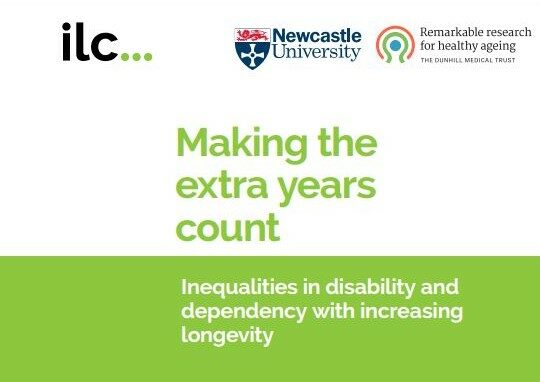The International Longevity Centre (ILC) has today published a report, which draws on research led by Newcastle University and funded by The Dunhill Medical Trust, investigating the trends in longevity, disability, and dependence between 1991 and 2011. The research also explores how these trends relate to long-term conditions and socioeconomic inequalities.
Key findings include:
- Many measures of life expectancy have improved over the past decades for both men and women.
- At the same time, ill health and disability have been increasing while the proportion of life spent in good health and free from disability has been declining.
- Inequalities between socioeconomic groups in terms of life expectancy without disability at age 65 tripled between 1991 and 2011.
A spokesperson for ILC observed that the new evidence adds weight to the findings of its Delivering prevention in an ageing world programme and its recommendations for action:
- Democratise access to prevention to alleviate health inequalities
- Inspire and engage policymakers, healthcare professionals and
individuals to consider, support and access prevention - Use technology effectively.

